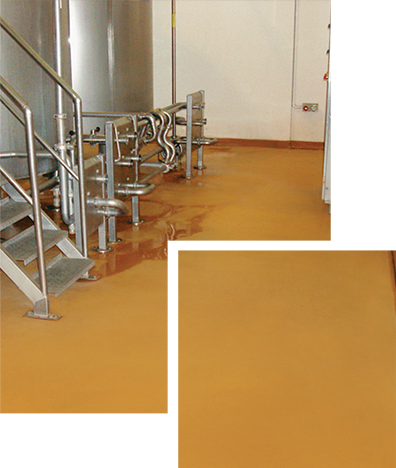Why Food Grade Epoxy Resin Flooring?
In todays litigious world, protecting your food grade services and production has never been more important. One recall due to Listeria or E.coli can bring an otherwise successful facility to its knees.
Resinous flooring brings many benefits, such as including impervious surfaces, and removing the possibility of retaining any contaminates or soiling. Food grade epoxy allows you to apply a radius cove at all of the wall-to-floor joints, creating a food grade epoxy resin flooring system that will act like a bathtub, preventing bacteria and other debris from festering in any corners.
Differences Between Epoxy Flooring and Urethane Cement Flooring
FDA approved epoxy is actually a misnomer, as more commonly, urethane cement flooring is used in environments where varying temperatures are concerned. This is due to its thermal shock abilities, or the quality that allows the system to maintain the same expansion coefficient as concrete. Whereas, food safe epoxy resin, has a much more rigid quality about it, creating a scenario that when temperatures vary, the effects over time is micro fracturing at the bonding point and eventually peeling of the food safe epoxy resin.
We use the term epoxy often, and while we have done our very best to inform our clientele, it's not at all uncommon that they refer to all resinous flooring, as epoxy flooring. However, epoxy describes a particular chemistry, and not all resinous flooring falls under that category.




